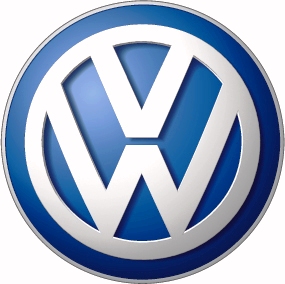Volkswagen’s voracious appetite for adding brands to its portfolio may finally have been sated – or, more precisely, the maker’s labor chief is saying “enough is enough.”
Having recently completed the takeover of German sports carmaker Porsche, Volkswagen reportedly was already moving on and looking at the possibility of acquiring the Malaysian-based Proton and its British subsidiary Lotus. That could have brought VW’s brand count up to 14.
But Bernd Osterloh is putting his foot down over that idea, telling the German newspaper Handelsblatt, “We already have 12 brands and we first have to stabilize the group.”
As the head of Volkswagen’s works council it might not seem like Osterloh’s opinion would matter. It would only carry minimal weight with most companies around the world. But under Teutonic rules, labor gets a very large say in the management of a manufacturer like VW, so his thumbs-down response on the Proton talks would be difficult to override.
Nonetheless, it also appears that the preliminary interest in Proton was being driven by Ferdinand Piech, head of Volkswagen’s Supervisory Board and architect of the Porsche marriage. The no-nonsense executive seldom fails to get his way and this could become a case of irresistible object slamming into an immovable object.
Volkswagen previously tried to negotiate a partnership with Proton, but the 2007 bid was rejected in favor of one from DRB-Hicom. But things have been going south for the Malysian operation and its Lotus subsidiary. At the 2010 Paris Motor Show, the British unit had announced an ambitious plan to roll out five new products in five years. Deemed unlikely by most critics, Lotus has indeed begun to back down, especially after the recent ouster of CEO Dany Bahar.
While VW has shown a strong interest in luxury and exotic products – think Audi, Lamborghini, Bentley and Bugatti – it’s uncertain it was seriously interested in helping little Lotus fulfill its dreams. Apparently of more interest was Proton and the potential that brand might offer to expand VW’s corporate presence in the booming Asian region.
VW is the number two maker in China, behind General Motors and its various alliance partners. But VW could use a boost in other regional Asian markets.
“Even though further sales and production sites in south-east Asia are important, there is no support from the labour side for a purchase of Proton,” Works Council chief Osterloh told Handlesblatt in this week’s issue.
Whether management will now try to sway his position remains to be seen. With Piech leading the charge, the automaker way able to resist Porsche’s David v Goliath takeover bid, eventually acquiring its little rival. Piech seldom fails to get what he wants, observers emphasize.

